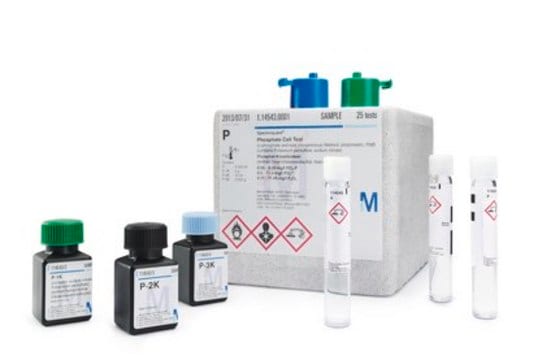1.09956
Sodium hydroxide solution
c(NaOH) = 1 mol/l (1 N), concentrate for preparing 1000 mL volumetric solution for titration, Titrisol®®
About This Item
Polecane produkty
product name
Sodium hydroxide solution, for 1000 ml, c(NaOH) = 1 mol/l (1 N) Titrisol®
ciśnienie pary
3 mmHg ( 37 °C)
Poziom jakości
linia produktu
Titrisol®
Postać
liquid
przydatność reakcji
reaction type: Acid-base reactions
stężenie
1 M
metody
titration: suitable
pH
14 (20 °C in H2O)
gęstość
1.030 g/cm3 at 20 °C
temp. przechowywania
15-25°C
ciąg SMILES
[OH-].[Na+]
InChI
1S/Na.H2O/h;1H2/q+1;/p-1
Klucz InChI
HEMHJVSKTPXQMS-UHFFFAOYSA-M
Szukasz podobnych produktów? Odwiedź Przewodnik dotyczący porównywania produktów
Zastosowanie
- Adsorption Studies: Sodium hydroxide solution is used in treating polymer adsorbents to enhance their adsorption properties. A recent study investigated the effect of treating a PVC/Aliquat-336 polymer adsorbent with sodium hydroxide on chromium (VI) adsorption. The treatment improved the adsorption capacity of the polymer, making it more effective in removing heavy metals from aqueous solutions (Ouazine et al., International Journal of Environmental Analytical Chemistry, 2022).
- Synthesis of Sodium Ethoxide: Sodium hydroxide solution is employed in the synthesis of sodium ethoxide, an important reagent in organic synthesis. Research has demonstrated that sodium ethoxide can be synthesized efficiently at ambient temperature using sodium hydroxide and ethanol-90. This method offers a straightforward and cost-effective approach for preparing this key chemical intermediate (Randriana et al., World Journal of Applied Chemistry, 2021).
- Corrosion Inhibition: Sodium hydroxide solution is used in corrosion inhibition studies. Research has shown that an aqueous extract of Thespesia populnea plant leaves can effectively inhibit the corrosion of aluminum steel in sodium hydroxide solution. The study utilized electrochemical techniques to demonstrate the formation of a protective film on the steel surface, highlighting the potential of natural inhibitors in industrial applications (Brindha and Venkatraman, Research Journal of Chemistry and Environment, 2023).
Informacje prawne
Hasło ostrzegawcze
Danger
Zwroty wskazujące rodzaj zagrożenia
Zwroty wskazujące środki ostrożności
Klasyfikacja zagrożeń
Eye Dam. 1 - Met. Corr. 1 - Skin Corr. 1A
Kod klasy składowania
8B - Non-combustible, corrosive hazardous materials
Klasa zagrożenia wodnego (WGK)
WGK 1
Temperatura zapłonu (°F)
Not applicable
Temperatura zapłonu (°C)
Not applicable
Certyfikaty analizy (CoA)
Poszukaj Certyfikaty analizy (CoA), wpisując numer partii/serii produktów. Numery serii i partii można znaleźć na etykiecie produktu po słowach „seria” lub „partia”.
Masz już ten produkt?
Dokumenty związane z niedawno zakupionymi produktami zostały zamieszczone w Bibliotece dokumentów.
Klienci oglądali również te produkty
Nasz zespół naukowców ma doświadczenie we wszystkich obszarach badań, w tym w naukach przyrodniczych, materiałoznawstwie, syntezie chemicznej, chromatografii, analityce i wielu innych dziedzinach.
Skontaktuj się z zespołem ds. pomocy technicznej





